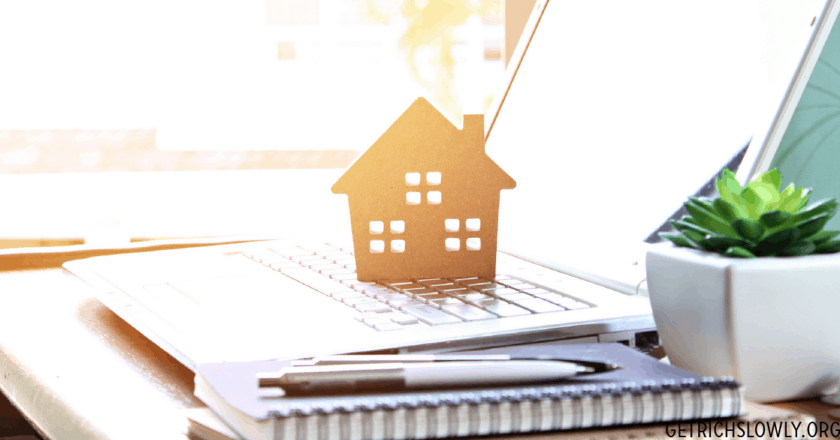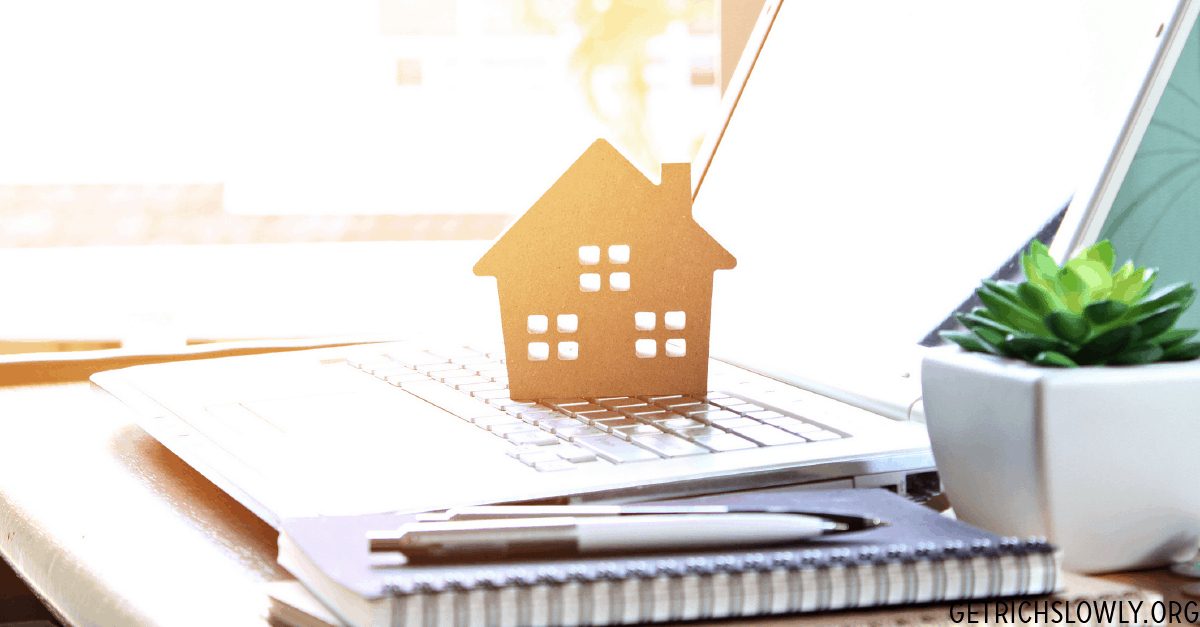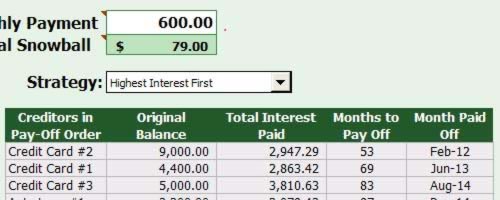Pros and cons: 30-year mortgage vs. 15-year mortgage



The main differences between 15- and 30-year loans are straightforward. Fifteen-year loans have higher monthly payments, but you pay less interest, while 30-year terms have lower monthly payments, but you pay significantly more for the house in the long run. As with most areas of personal finance, however, this decision is about more than just the math. There are other important considerations, such as retirement savings, risk tolerance, and discipline.
The best books on money: 25 essential personal finance books

I shared a list of my favorite books about money once before, but that was over two years ago. I've read dozens of books since then (and thumbed through dozens more). Here is a revised list of 25 great books about money.
These are all books that I found entertaining or influential. There are still many "big name" books that I haven't read, such as "A Random Walk Down Wall Street" and "The Intelligent Investor," and I've left off some perennial favorites such as "The Richest Man in Babylon" and "The Wealthy Barber."
Should repaying debt be an obsession?
Some people never take control of their finances because they're afraid that doing so would require them to give up everything they enjoy. I don't believe that's true. Getting out of debt requires hard work and sacrifice, but that doesn't mean you can't have fun along the way.
Aaron recently sent the following e-mail:
You paid off $35,000 in debt in just over three years. Does that mean you were balls-to-the-wall dedicated and had no frills and were dour-faced the whole time? Were you using every spare penny to pay debt? Did you give up all luxuries and all fun? Did paying off the debt consume you?
Like a drug: Suze Orman on credit cards
I recently participated in a conference call with Suze Orman, who is working to promote Best Life Week. This series runs on The Oprah Winfrey Show all this week, and is intended to help viewers "jumpstart 2009 and make it the best year ever!"
Hyperbole aside, it was great to have a chance to speak with Suze Orman, who will be sharing money tips with Oprah viewers this Thursday. I tried to ask her about maintaining motivation and sticking to goals. She answered with how to avoid credit cards. Not exactly what I was after, but the information was still good.
J.D. Roth
Having once been over $35,000 in debt myself, I know that it's one thing to say you're ready to get out of debt and to stop using credit cards, but it's another thing to actually maintain the dedication for the days and the years that are needed to pay that debt off. I'm wondering if you have any favorite behavioral tips or tools for maintaining motivation with new goals for a New Year's resolution.
The debt-to-income ratio: How much house can you afford?
Housing is the largest expense in the budget of most families. But how much is too much to spend on shelter? An article in Saturday's New York Times contains a shocking example of one woman who crossed the line:
What she got was a mortgage she could not afford. Toward the $385,000 cost, [Christina] Natale made a down payment of $185,000, a little less than what she took away from the sale of her grandfather's home. The loan that made up the difference, with closing costs, broker's fee, taxes and insurance, meant a monthly bill of $1,873.96, about $100 less than her monthly take-home pay as an administrative assistant.
I am not unsympathetic to tales of financial hardship, but this stretches even my compassion. Ms. Natale (who has three children) took out a housing loan that left her just $100 a month for every other expense in her life. She shouldn't need an outside voice to tell her that this was an impossible situation. (All the same, where were the outside voices?)
Free debt snowball spreadsheet

Vertex42, a site devoted to Microsoft Excel templates, spreadsheets, and calendars, has posted a free debt snowball calculatorthat will help you create a debt snowball spreadsheet. From the description:
This spreadsheet allows you to choose different debt reduction strategies, including the debt snowball effect (paying the lowest balance first) and highest interest first. Just choose the strategy from a dropdown box after you enter your creditor information into the worksheet.
What Do You Get?
This file contains two worksheets:
What are debt snowballs made of? Debt snowflakes!
During the twenty years I carried consumer debt, I made several attempts to change my habits. Every time I decided to lick the debt monster, I would follow the advice in the financial books: I'd arrange my debts in order, listing the one with the highest interest rate first. I'd pay extra on this bill for a couple of months, but then give up in frustration because I didn't seem to be making any progress — $100 extra on a $12,000 balance doesn't make a dent.
Eventually, I read Dave Ramsey's The Total Money Makeover. His debt snowball method changed my life. Ramsey writes:
Personal finance is 80 percent behavior and 20 percent head knowledge. The Debt Snowball is designed the way it is because we are more concerned about modifying behavior than correct mathematics...Being a certified nerd, I always used to start with making the math work. I have learned the math does need to work, but sometimes motivation is more important than math. This is one of those times. Continue reading...
More about...DebtUsing a home equity loan to pay off credit cards
Continue reading...
You've spent the past few years being dumb with money. You realize that now. Your credit cards are maxed out, you're living paycheck-to-paycheck, and you cannot see a way out. You plan to sell some stuff and to take a part-time job, but you're looking for other ways to ease the burden. If you're a homeowner, one option to consider is tapping your home equity to consolidate your consumer debts.
Definitions
Just what is home equity anyhow? Home equity is the difference between what your property is worth and what you owe on it. If your home is currently worth $200,000, for example, and your mortgage balance is $150,000, then you have $50,000 of equity.
Under normal circumstances, this equity remains untapped, increasing slowly with time. There are, however, a couple of ways to use home equity for other purposes:
Free at last! Saying good-bye to 20 years of debt
Twenty years ago, I was a freshman in college. I was a poor kid from a poor family, but my roommates came from wealth. In order to fit in, I went out and picked up a department store credit card. I bought some new clothes, an electric shaver, and a bottle of cologne. From that day on, I've been in debt.
Getting Hooked
My debt grew slowly at first. The department store credit card had a $500 limit. I knew that I shouldn't come close to the limit, and that I should pay the card off, but within a year I'd maxed it out and was only making minimum payments.
By the time I graduated from college in 1991, I had acquired two additional credit cards. I was glad I had them, too — when my job plans fell through, the credit cards became my emergency fund. I lived off them for months. I also bought a brand-new Geo Storm. Within six months of graduating from college, I was unemployed and carrying $20,000 in debt. Continue reading...
The thrill of paying off a mortgage
A few weeks ago, J.D. and I were chatting when he asked me what it felt like to be debt-free. He'd read on my blog that I had no debt and was curious if I'd write about it for Get Rich Slowly. In particular, he asked me to communicate both how I managed to pay off my mortgage (the biggest debt most people have) as well as how it felt when we did so. I was happy to accept his offer.
Just to note, the purpose of this post isn't to debate whether or not paying off all debt is a good idea (versus only making mortgage payments and investing the rest, for example), so I've purposely left it out. My goal is simply to tell you our story — what happened and how we did it. From there, you can decide whether or not this path is for you. Since my wife and I are debt-haters, this option simply seemed natural to us. In addition, I can also tell you that living ten years without any debt has been a great feeling.
In the mid-90's, we moved to the southern part of the U.S. Here's how we paid off our mortgage in 1997 and haven't had one since: Continue reading...
